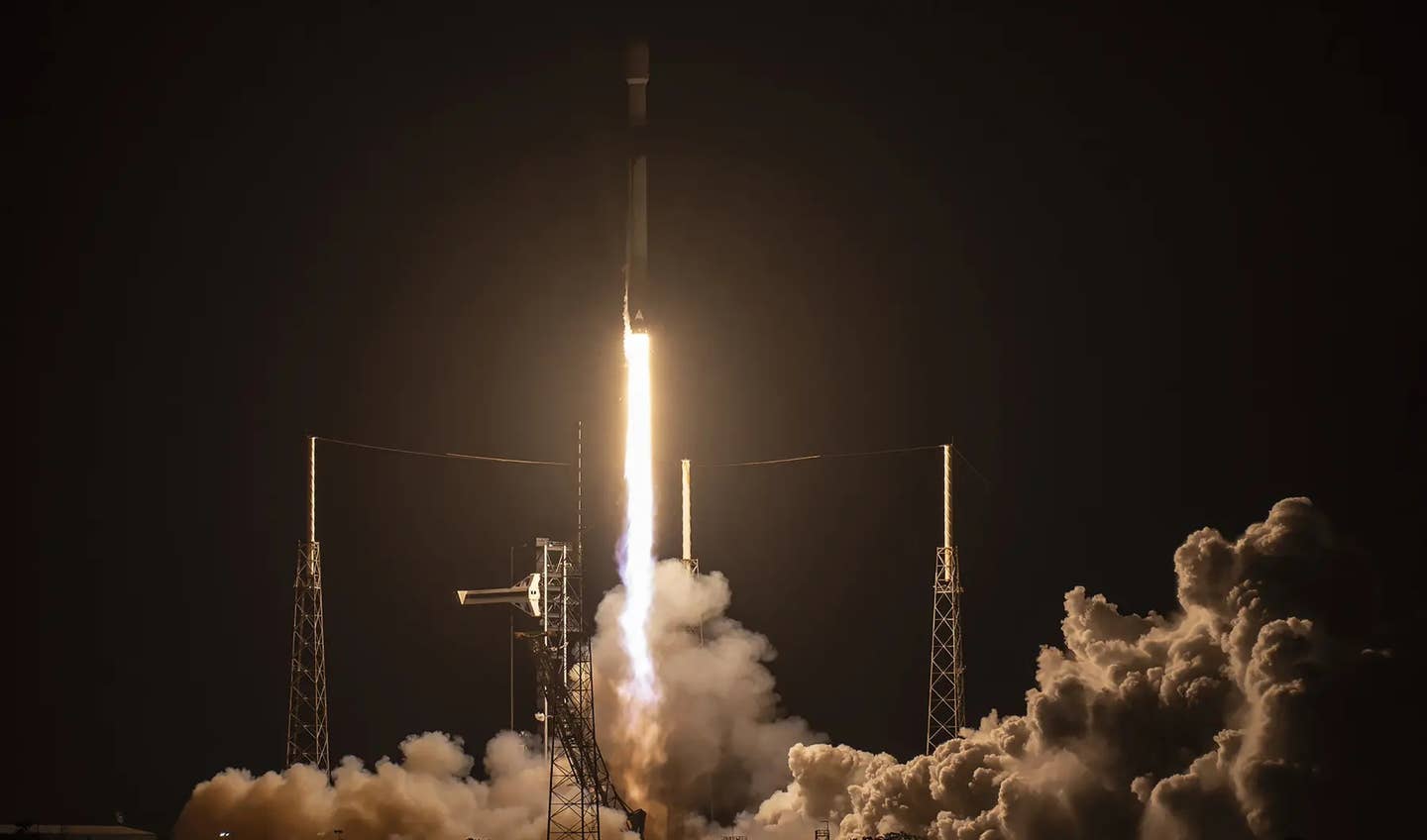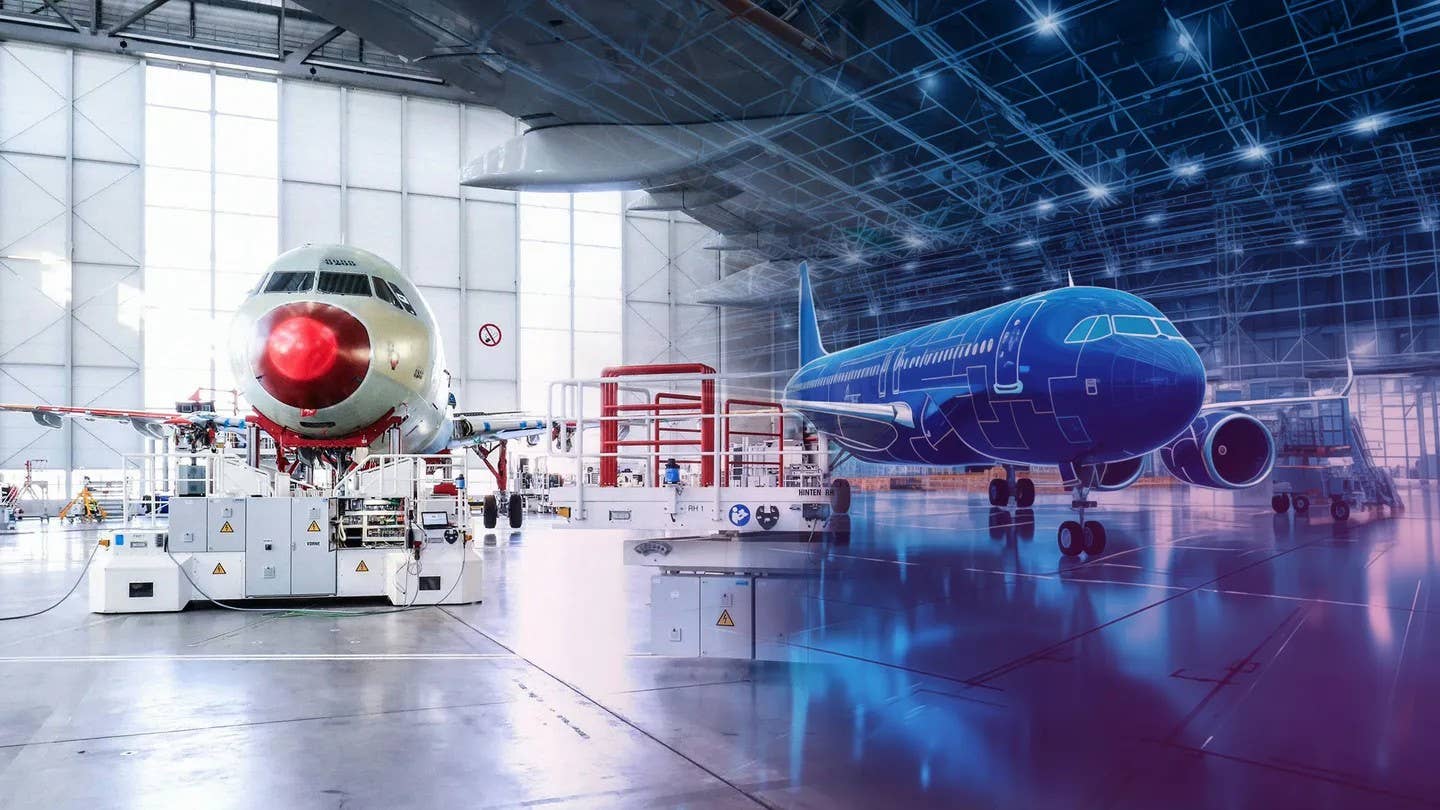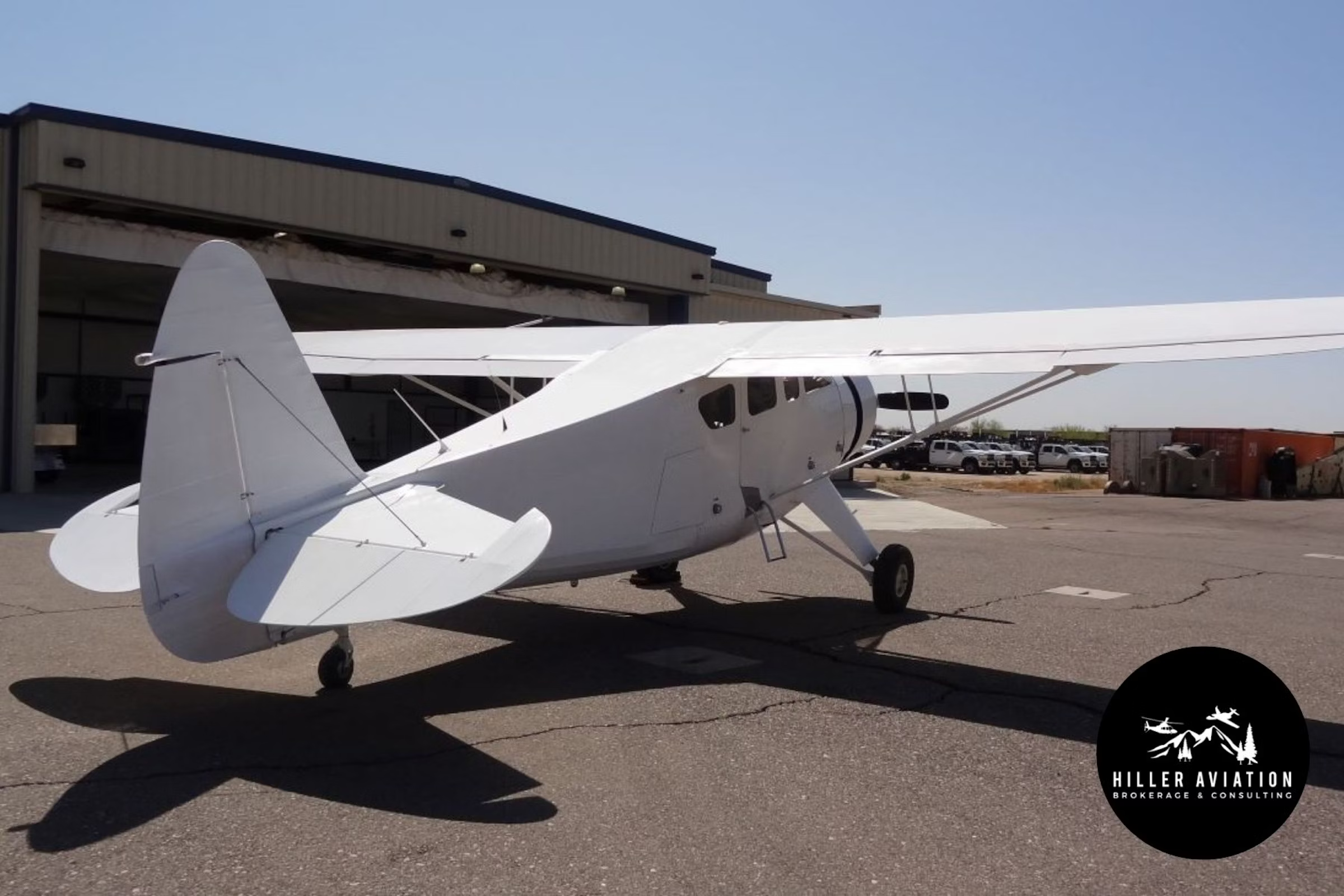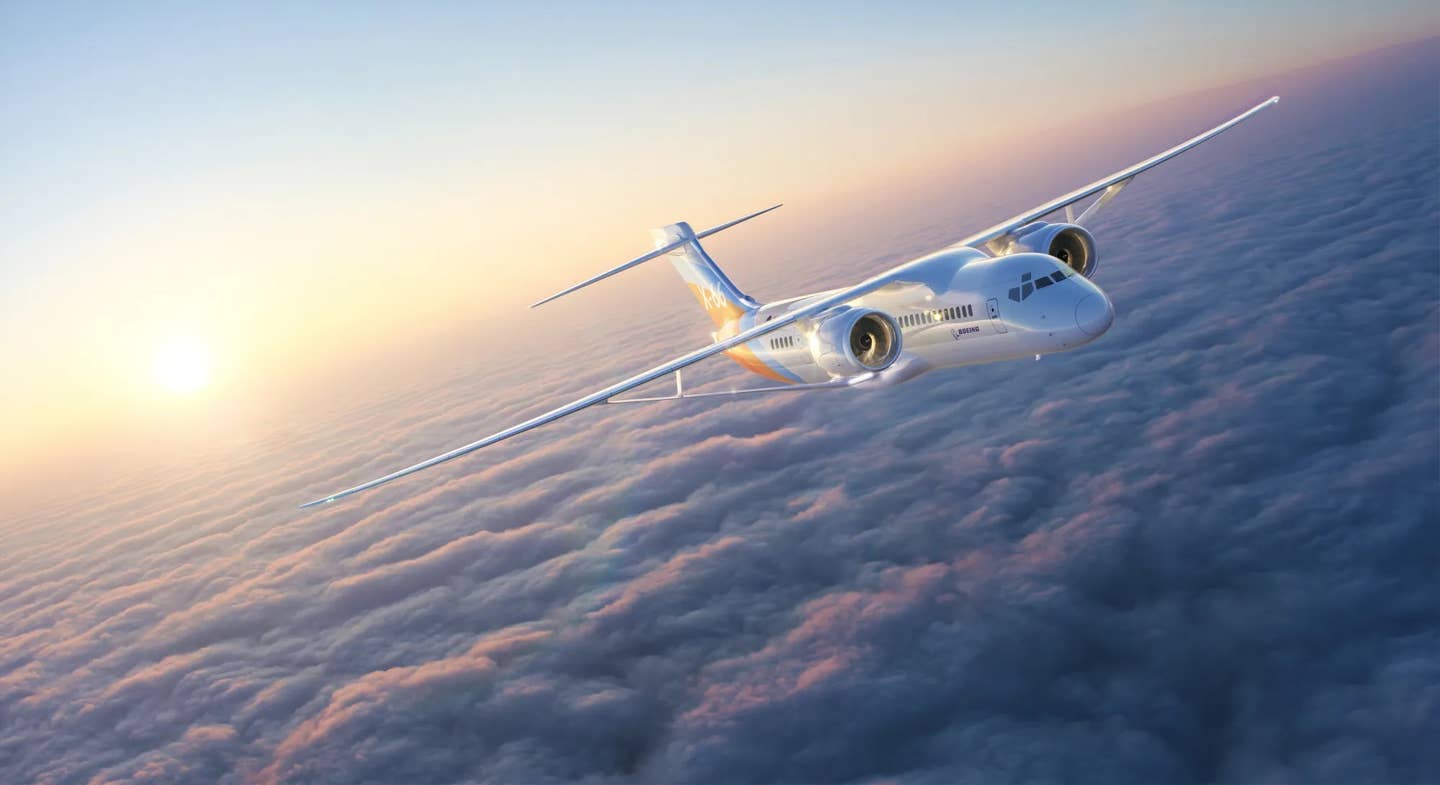Joby Aviation Moves A Step Closer to Certification
The California-based electric vertical takeoff and landing (eVTOL) developer has begun FAA conformity testing of its air taxi prototype.
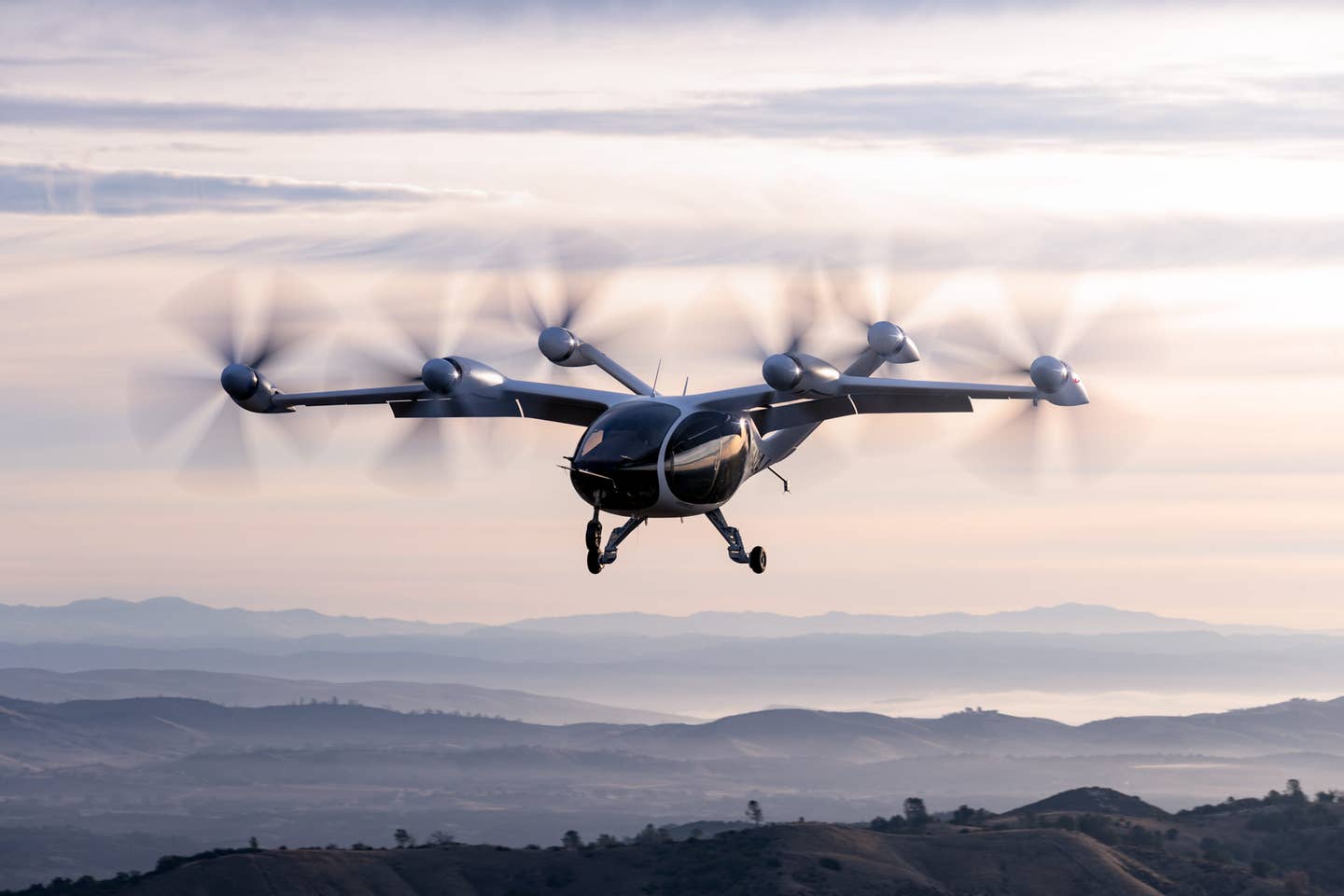
Joby Aviation says it expects its air taxi to be certified by 2023 and to enter service by 2024. [Courtesy Joby Aviation]
Hailing it as a significant moment, California-based Joby Aviation (NYSE:JOBY) Thursday announced its first entry into the implementation phase of the FAA type certification process in its quest to develop an electric vertical takeoff and landing (eVTOL) air taxi.
An initial series of conformity tests were completed this week in Morgan Hill, California, at a facility operated by Toray Advanced Composites USA, under FAA designated engineering representative (DER) observation. The testing is designed to confirm the material strength of specific composite materials made with a toughened epoxy and strong, lightweight carbon fiber.
“After years of development and company testing, we’re excited to formally begin the process of conformity testing,” said JoeBen Bevirt, Joby founder and CEO. “We began engaging with the FAA in 2015 to lay the groundwork for certification of our aircraft, and today we move closer to bringing fast, clean, and convenient aerial ridesharing to the world.”
Eventually—in addition to manufacturing air taxis—the Uber-backed company plans to operate an air taxi service through Uber’s already successful rideshare mobile platform.
Earlier this week Joby announced a new partnership with SK Telecom that will pave the way for Joby aircraft to offer taxi services in South Korea.
Thousands of Inspections
As is typical in a certification program, each system and structure of the aircraft enters an implementation phase and begins conformity testing following completion and approval of requirements definition and compliance planning, Joby said. During this phase, the company said it plans to complete thousands of inspections and tests to demonstrate the airworthiness and safety of its aircraft before receiving an FAA type certificate.
Plans call for the eVTOL to be certificated under Part 23 standards from a size, scale, and weight perspective. Joby has said it expects regulators to certify its eVTOL air taxi in 2023, to be followed by the aircraft entering commercial service sometime in 2024.
The aircraft is part of the emergence of an entirely new type of electric aircraft, designed to take off and land vertically and fly horizontally without creating carbon emissions. Developers hope to manufacture aircraft that can fly passengers or cargo on short flights over traffic congested urban areas.
Joby says it has flown more than 1,000 test flights and was the first eVTOL company to sign a G-1 certification basis with the FAA—which essentially forms the roadmap to certification.
Joby’s two eVTOL test articles are configured with six tilt-rotors driven by electric motors and powered by lithium-ion batteries. It’s designed to carry four passengers and a pilot up to 150 sm on a single charge, at speeds up to 200 mph (174 knots)—and it has already passed these thresholds during flight testing.

Sign-up for newsletters & special offers!
Get the latest FLYING stories & special offers delivered directly to your inbox

